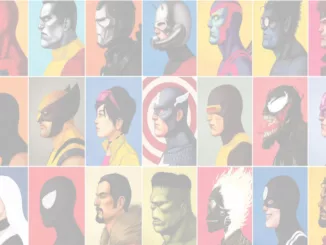
photo credit: Hiya Patel
The 2024 Olympics in Paris have been a popular topic among people as of recently. Fans have been raving about Ezra Frech, who competed in track events with a prosthetic leg and spoke out about disabilities in the Olympics. Along with Simone Biles, seven time medalist. Though the Olympics is an inspiring event for countries, controversy has been stirring with fans because of a rapist being able to compete.
Steven van de Velde is a Dutch beach volleyball player who, according to Forbes, Steven van de Velde pleaded guilty to three counts of rape against a child for events that occurred in 2014. Van de Velde served 13 months in prison, along with 12 months in prison in Britain before he was transferred to the Netherlands. He was resentenced to a shorter term under Dutch law and was released in early 2017.
The question at the center of this debate is whether a convicted rapist have he been allowed to compete in this year’s Olympics. The answer is no. If this said athlete would’ve been a burglar or committed tax fraud, this question would’ve been a yes, but, Van de Velde took advantage of a girl who couldn’t have defended herself even if she tried. That should say everything about him as a team player, his character and just his overall view on people.
Van de Velde flew from Amsterdam to London in 2014 to meet with a 12-year-old girl he’d met online, according to The Athletic, then, he had sex with her and advised her to get a morning-after pill.
Even though this happened a decade ago, he raped this girl not once, but three times. He made a mistake and continued to make it, knowing what it would do to his career. Yet, the Olympics let him continue his volleyball goals.
This situation is a very bad look for the International Olympic Committee and for the Dutch Olympic officials who condoned him competing. These officials shouldn’t have condoned his crime just because it happened a while ago. This is such a beautiful setting for an ugly sentence; a rapist being able to compete in the Paris Olympics leaves a sour taste in a lot of these fans’ mouths.
Even though Van de Velde was rebuilding himself, people must think of the victim and the effects he had on her life. According to USA Today,It was revealed in court, too, that she had since self-harmed and taken an overdosed on some kind of medicine.
Additionally, The Athletic had confirmed that Judge Francis Sheridan told Van de Velde: “The emotional harm that has been caused to this child is enormous. As she matures, she will have to come to realize that you are not the nice man she thought you were and hoped you might be.”
This girl was affected in more ways than one, he should have known this going in and understood that entering the field. Fans are not going to easily accept his attempt at coming back after his horrid mistakes.
Not only did this affect the Olympics reputation and on the girl he assaulted, this situation also affected the message the Olympics sent to the world. According to DailyMail UK, one woman interviewed and filmed at the Olympic games said, “Well, of course, it’s weird, especially being a woman, I think. I know it’s a big thing for him. But what is the message we are telling to the rest of the world? What is the message we are telling to women, especially little girls?” Think about it. Countries everywhere watch the Olympics. This message is inferring if someone were to get raped, it’s not that substantial and can be excused. This can make people believe rape is pardonable and people should not own up to their actions.
Van de Velde’s case is serious and a controversial topic among fans. His assault wasn’t an accident, and he put these consequences onto himself. This not only affected the girl that was raped, but all the other little girls watching sports. If he continues to play, this situation sets a standard of how sports are more important than a person’s life. As a community, people have to start embracing a zero-tolerance approach to this brutal and costly crime. Athletes committing violent crimes should be permanently prohibited by the International Olympic Committee to compete in the Olympics.


